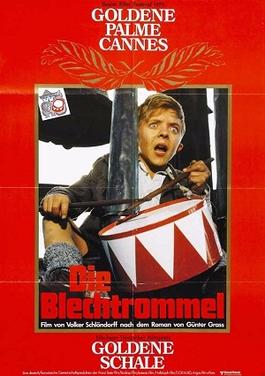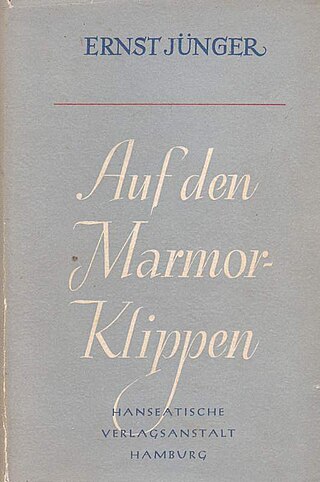
Feodor Ingvar Kamprad was a Swedish billionaire business magnate best known for founding IKEA, a multinational retail company specialising in furniture. He lived in Switzerland from 1976 to 2014.

Klaus Riedel was a German rocket pioneer. He was involved in many early liquid-fuelled rocket experiments, and eventually worked on the V-2 missile programme at Peenemünde Army Research Center.

Louis Renault was a French industrialist, one of the founders of Renault, and a pioneer of the automobile industry.

Paragraph 175 was a provision of the German Criminal Code from 15 May 1871 to 10 March 1994. It made sexual relations between males a crime, and in early revisions the provision also criminalized bestiality as well as forms of prostitution and underage sexual abuse. Overall, around 140,000 men were convicted under the law. The law had always been controversial and inspired the first homosexual movement, which called for its repeal.
The Red Lake shootings were a spree killing that occurred on March 21, 2005, in two places on the Red Lake Indian Reservation in Red Lake, Minnesota, United States. That afternoon, 16-year-old Jeff Weise killed his grandfather and his grandfather's girlfriend at their home. After taking his grandfather's police weapons and bulletproof vest, Weise drove his grandfather's police vehicle to Red Lake Senior High School, where he had been a student some months before.
John Patsalos, formerly known as John Patler, is an American former neo-Nazi who was convicted of the August 25, 1967, murder of American Nazi Party leader George Lincoln Rockwell.
The Conference on Jewish Material Claims Against Germany, or Claims Conference, represents the world's Jews in negotiating for compensation and restitution for victims of Nazi persecution and their heirs. According to Section 2(1)(3) of the Property Law of Germany, the Claims Conference is a legal successor with respect to the claims not filed on time by Jewish persons. This fact was reasserted in decisions of some lawsuits which attempted to redefine the Claims Conference as a "trustee" of these assets. These lawsuits were dismissed. The Claims Conference administers compensation funds, recovers unclaimed Jewish property, and allocates funds to institutions that provide social welfare services to Holocaust survivors and preserve the memory and lessons of the Holocaust. Julius Berman has led the organization as chairman of the board, and currently president, as of 2020.

Palais Ephrussi is a former Ringstraßenpalais in Vienna. It was built for the Ephrussi family of financiers by Theophil Freiherr von Hansen, the architect of the Austrian Parliament Building. It is on the Ringstrasse, specifically the Universitätsring, opposite the Votivkirche.

George Joseph Bates was a member of the United States House of Representatives from the state of Massachusetts. Born in Salem, Massachusetts, he served in the Massachusetts House of Representatives 1918–1924. Bates was then elected Mayor of Salem in 1924 at the age of 33. He served as mayor until 1937, at which time he was sworn in as a Republican member of the House in the 75th Congress. During World War II, he was an interventionist. After the fall of France and before the Nazi invasion of Soviet Russia, Britain was effectively fighting the Nazis alone, throughout this time period Bates was outspokenly pro-British, and he advocated aiding Britain in any way possible, in order to help in their war against the Nazis. In 1941 he was one of the few Republicans to abstain from voting on the 1941 Lend Lease Act. Bates voted in favor of arming merchant ships. Bates made good on his campaign promises and voted to increase lend-lease funding to the British military as well as food aid for British civilians during the Blitz. Bates was subsequently re-elected six times.
The Electric Grandmother is a television movie that originally aired January 17, 1982, on NBC as a 60-minute Project Peacock special, based on the 1969 science fiction short story "I Sing the Body Electric" by Ray Bradbury. It stars Maureen Stapleton and Edward Herrmann and was directed by Noel Black. Bradbury's story was originally written as a teleplay in 1962 as "I Sing the Body Electric", an episode of The Twilight Zone. The film was distributed on VHS by Coronet Video.

The Tin Drum is a 1979 film adaptation of Günter Grass' novel of the same name, directed by Volker Schlöndorff from a screenplay co-written by Schlöndorff, Jean-Claude Carrière, and Franz Seitz. It stars Mario Adorf, Angela Winkler, Katharina Thalbach, Daniel Olbrychski, and Charles Aznavour, with David Bennent in the lead role of Oskar Matzerath, a young boy who willfully arrests his own physical development and remains in the body of a child even as he enters adulthood.

Alex Holeh Ahavah is a 1986 Israeli film directed by Boaz Davidson. It stars Eitan Anshel, Sharon Hacohen, and Uri Kabiri. The film, set in the 1950s, features a boy (Anshel) as the main protagonist and his life as the son of Polish immigrants.

On the Marble Cliffs is a novella by Ernst Jünger published in 1939 describing the upheaval and ruin of a serene agricultural society. It was published that year by Hanseatische Verlagsanstalt in Hamburg, Germany.

Josef Carl Peter Neckermann was a German equestrian and Olympic champion. He won Olympic medals at four different Olympics, in 1960, 1964, 1968 and 1972. Later Neckermann became a member of the West German National Olympic Committee.
Hermann Fellner was a German politician, representative of the Christian Social Union of Bavaria. He was a member of the Bundestag of Germany.
The Deutsch Schützen massacre was a 1945 mass killing of approximately 60 Jewish forced laborers by the Waffen-SS in Deutsch Schützen-Eisenberg in Austria. At the old church, Martinskirche, in the farmland on the west side of Deutsch Schützen, a plaque is erected on the exterior of the building memorializing those murdered in the massacre.

The Blackguard is a 1925 British-German silent drama film directed by Graham Cutts and starring Jane Novak, Walter Rilla, and Frank Stanmore. The film is set against the backdrop of the Russian Revolution during which a violinist (Rilla) saves a princess (Novak) from execution.
Jeffrey Russell "Jeff" Hall was a plumber in Riverside, California, and the regional leader of the National Socialist Movement. On May 1, 2011, he was shot to death with his own gun by his 10-year-old son Joseph. The murder took place at 4 a.m. as Hall slept on his couch.

Three Quarter Moon is a 2011 film based on an idea from Christian Zübert's wife İpek. They evolved the plot together.
Cine-Allianz Tonfilm was a German film production company established in 1932 by Arnold Pressburger and Gregor Rabinovitch. The company specialised in co-productions targeted at international markets, and enjoyed immediate success during the final year of the Weimar Republic. During the Nazi era the company's Jewish owners came under increasing pressure from the government and their property was expropriated. They were forced into exile, while Cine-Allianz continued to produce films under the Nazi regime until its merger with UFA in 1942.












